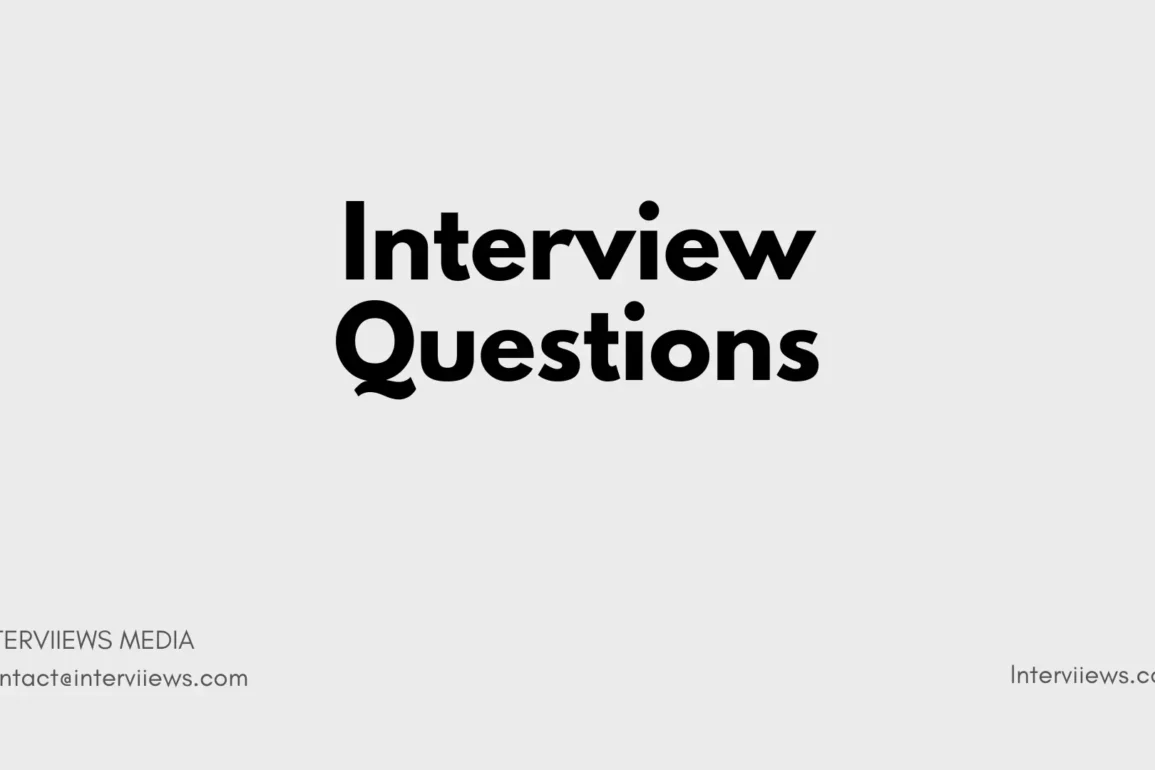When it comes to hiring the right manager, asking the right questions can make all the difference! In fact, a survey by the Society for Human Resource Management (SHRM) found that effective interview questions significantly boost the chances of selecting the right candidate. This article will guide you through essential interview questions for manager candidates that not only assess their skill sets but also evaluate their leadership potential, conflict resolution capabilities, and overall fit for your organization. Whether you’re HR professionals, hiring managers, or small business owners, it’s crucial to be equipped with a comprehensive list of questions tailored to your specific needs.
Importance of Manager Interviews
You know, it’s kind of mind-boggling how much a manager can affect team performance and the vibe of a company. When I was managing a small team of writers, I realized that not having the right manager can really create a toxic environment – trust me, I’ve seen it happen. Studies show that relationships with management can make up about 86% of employees’ satisfaction. That’s a pretty big deal! If a manager doesn’t gel well with their team or understand their needs, it can lead to disengagement and surprisingly high turnover rates.
- So, well-structured interviews can seriously alter the trajectory of a business. When I conducted interviews, I learned that digging into a candidate’s values and past experiences helped unearth whether they would be a good fit. You often hear that a manager can make or break the team, and it’s true!
- Interviews are an opportunity to really assess a candidate’s leadership style and how they build relationships with their staff. I remember asking a candidate how they handled constructive criticism in the past; the way they responded showed me they valued open discussions and fostering a supportive environment.
Identifying the Right Fit
Let’s talk about uncovering those qualities during the interviews. Take a moment to picture this: you’re in an interview room, and you ask your candidate about a time they helped a team member who was really struggling. What you’re looking for is not only their answer but how they deliver it. Their excitement or lack thereof can indicate how committed they are to team success. For me, I learned that managers who truly care about individual progress create ripple effects that improve overall performance.
To put it simply, managers who prioritize team-building and support their employees often inspire them to put in extra effort. Speaking from experience, hiring someone who clearly articulated their approach to developing talent formed an almost tangible excitement in the room. It was like a light bulb moment; you just knew they would make a positive impact.
Interview Questions That Matter
Here’s some food for thought: asking the right interview questions is key to finding that stellar manager. I’ve learned that some of the best questions revolve around their past experiences, especially ones that highlight their ability to balance results with relationships. For instance, something like, “Describe a time when you made a difficult decision and its impact. ” It can help reveal not just their problem-solving ability, but how they handle the aftermath and communicate it to their team.
- Also, consider how they respond to questions about their least favorite management experiences; it’s often a goldmine for identifying red flags. Get ready for some honesty – no one wants a manager who glosses over their failures.
- And oh, this one’s underrated: Ask about how they’ve given feedback to underperformers. The approach they take here can show you if they’ll nurture talent or just crack the whip.
In a nutshell, the right manager can bring out the best in everyone. It’s all about sifting through the candidates to find that rare gem who isn’t just a good fit for the role but fits with your team like a missing puzzle piece. And believe me, taking the time to refine that interview process pays off big time when a workplace is thriving!
General Leadership Questions
- Explore questions that reveal a candidate’s leadership philosophy.
- Examples of key questions:
- How would you describe your management style?
- Can you share an example of how you motivated a team?
- Discuss the significance of these questions in gauging a manager’s fit within your company culture.
What’s Your Management Style?
Ah, the dreaded “management style” question. It sounds so formal, right? But honestly, the answer can tell you a lot about where a candidate stands as a leader. My experience has shown me that management styles vary widely. Some folks lean towards being authoritarian — they like to take charge and provide clear direction.
Others might embrace a more democratic approach, encouraging team members to voice their input. Sometimes, it’s a mix of both, depending on the situation at hand. When I got asked this question in an interview once, I recalled leading a small team during a high-pressure project. I described my style as supportive yet assertive, emphasizing the need for guidance but also allowing room for creativity.
Sharing a personal anecdote about how I encouraged an introverted team member to share her ideas not only illustrated my management philosophy but also demonstrated teamwork in action. That’s key!
Motivating Teams: The Real Deal
Another question that I found really reveals a candidate’s leadership approach is: “Can you share an example of how you motivated a team?” This question dives deep into their methods and philosophies.
You can totally tell if they genuinely care about their team’s well-being or if they see them just as resources. For instance, I once had a manager who noticed a drop in morale during a tough quarter. Instead of ignoring it, she gathered us for a lunch-and-learn session, where we shared our challenges and brainstormed solutions together.
It felt refreshing, and we ended up coming up with a new strategy that not only boosted our spirits but also increased our productivity. When candidates can recall personal tales like this, it often highlights their ability to connect with others and adapt their approach accordingly. In conclusion, while it sounds cliché, these questions aren’t just for show.
They provide a glimpse into how a candidate could mesh with your company culture. What works for one organization might not work for another, and understanding these nuances helps leaders find their fit.
A leader’s philosophy can lead to commissioned sales goals or solid performance figures, but if they can’t Morrison motivate and maintain a team, those numbers won’t mean much in the long run.
Conflict Resolution Questions
- Understanding conflict management skills is like finding the missing piece in a puzzle. It’s essential because what happens between team members can really impact team dynamics.
- So, when you’re looking to assess someone’s skills, you want to dig deep into their experiences.
Key questions to consider:
- How do you handle conflict within your team? This question can shine a light on their maturity and how they own accountability. If they share a story of a tough situation, you’ll be able to see how they react to stress. I remember at one point, I asked a candidate this, and they opened up about a heated disagreement between two of their team members. They explained how they facilitated a group meeting to address the root of the issue, ensuring everyone felt heard. That was a telling moment for me.
- Describe a time you managed a team disagreement. This one gets the candidates to illustrate their method. What strategies did they use? It’s kind of like watching a movie from their managerial past. I once interviewed someone who described how they organized a brainstorming session to transform conflict into collaboration. This showed not just reactive measures, but proactive leadership.
Techniques for interpreting their answers:
- You gotta listen for the details. Look for patterns in how they approach these situations. Is there a sense of empathy? When they recount their story, do they take responsibility for their part in any problems?
- Watch their body language too. A confident candidate will often lean in. If they seem hesitant or vague, it might indicate they lack experience or are trying to mask their true feelings about conflict.
So, learning about conflict management isn’t about just tossing a few questions around. It’s digging into how candidates see conflict, how they process it, and ultimately, how they ensure their team stays healthy and productive through it all.
Performance Management Questions
Are you preparing to interview a manager who will oversee performance management? I’ve learned that asking the right questions can reveal so much about a candidate’s approach. A well-structured performance management system accounts for everyone’s growth and well-being. It’s not just about metrics and targets; it’s about how managers foster a motivating environment. Here’s what I like to focus on:
- The purpose of evaluating a candidate’s performance management approach. Knowing how a manager handles performance can tell you about their leadership style. Are they collaborative or dictate the terms? That’s a crucial insight into whether they’ll thrive in your workplace.
- Must-ask questions:
- What is your approach to performance management in teams?
- How do you deal with underperforming employees?
Let’s break these down:
Approaches to Performance Management
When asking about a manager’s performance management style, I often listen to how they prioritize team involvement. I once interviewed a candidate who said, “I love getting feedback from everyone.” This showed me they value a collaborative environment. A candidate’s response can highlight if they genuinely believe in growing their team or merely handing out evaluations like a checklist.
Handling Underperformance
Next, question them about dealing with underperforming employees. I’ve found that every manager has a unique method; what you want is a positive and constructive approach. For instance, one candidate shared a story of how they sat down with an underperforming teammate, explored challenges, and set achievable targets together. This kind of accountability isn’t just about assigning blame; it’s about mutual growth and investing in potential. Watch for clues on how they foster improvement and accountability instead of just focusing on consequences.
- Indicators of accountability: the manner they address challenges speaks volumes.
- Team development strategies: notice if they offer examples of building skills within their team.
In my experience, these conversations open windows into the candidate’s mindset, letting you judge if they’ll mesh well with your company’s values and ultimately nurture a strong, engaged team. Keep these insights close at hand as you prepare for those pivotal interviews!
Decision-Making Style Questions
You know, interviewing candidates for management positions can be quite the responsibility. One of the biggest things that I’ve learned over the years is that understanding how a candidate thinks, particularly when it comes to decisions, is super important. It’s not just about their experience but how they reach conclusions that will impact their team. So, let’s talk about some great questions to get a sense of their decision-making style.
Why Ask About Decision-Making?
- Insight into their reasoning process can reveal if their approach aligns with your company’s culture.
- Understanding their decision-making style helps gauge their adaptability to various situations.
- It can show whether they rely on data, intuition, or team consensus, which is crucial for effective leadership.
Sample Questions to Ask
When I conduct interviews, I’ve found a few specific questions to be particularly illuminating. For instance:
- Describe a decision you made that had a significant impact on your team. This helps you understand how they assess their choices and the consequences they weigh.
- How do you prioritize tasks among multiple deadlines? This gives insight into their organizational skills and how they handle pressure.
- Have you ever made an unpopular decision on behalf of your team? This could uncover their courage to make tough choices, even when they’re not popular.
Tips for Assessing Their Decision-Making Frameworks
It’s crucial to pay attention not just to the answers, but also to how they explain their thought process. Here are a few tips I’ve collected over the years:
- Ask follow-up questions to delve deeper into their reasoning.
- Observe their body language; confidence in their decisions often shines through.
- Look for consistency in their stories – a candidate that can mirror their past experience might be reliable.
Ultimately, a good manager should be able to balance their instincts with data—knowing when to trust their gut based on experience and when to dive into the numbers. It’s like cooking; you taste for seasoning, but you don’t forget the recipe!
Team Motivation and Engagement Questions
Evaluating a manager’s approach to team dynamics is crucial for any organization aiming for success. I remember an instance where I was tasked with evaluating a candidate who claimed to be a master at keeping his team motivated. It got me thinking about the depth of knowledge one should gauge during interviews. It’s not just about their past experiences; it’s about their actual strategies and how well they understand the needs of their team.
- Here are a few questions you might consider asking:
- How do you keep your team engaged and motivated? This question is fundamental. A manager should have clear and actionable strategies. I once met a manager who talked about having monthly brainstorming sessions. It not only made his team feel valued but also encouraged inventive thinking.
- Can you give an example of a time you successfully built morale? Put them on the spot! This helps in gauging their real-life engagement tactics. I once observed a manager who organized a surprise team lunch just to celebrate a small win. Sometimes, it’s the little things that make a big difference!
Understanding Their Responses
The answers to these questions really tell us about a manager’s competence in fostering a productive work environment. Does their method focus purely on deliverables, or is it more about the well-being of their team members? I always liked managers who could show how they balance deadlines with maintaining a positive culture. It’s also valuable if they’ve thought about how to handle conflicts within the team. I remember another candidate who shared a strategy about open door policies, which encourages team members to share grievances directly. That’s a win in my book!
Ultimately, motivating a team is about understanding individuals and tailoring approaches to meet their unique needs. The more adept a manager is at connecting with their team, the higher the engagement and productivity—an absolute win-win for everyone involved!
Questions to Ask Candidates
When you’re in the hot seat during a managerial interview, don’t you sometimes feel like it’s a one-way street? I’ve been there, and the best interviews I’ve had were those where I felt like I could also assess the company. It’s not just about them sizing you up; you should be figuring out if this place is right for you too. Giving candidates the chance to ask questions opens the door to a better dialogue and can uncover crucial insights about the organization.
- What is the team dynamic like? – This is a goldmine question! I remember asking this once and discovering that the team had a supportive atmosphere with regular brainstorming sessions. It helped me realize I’d fit right in.
- How does the company support managerial growth? – It’s vital to know what kind of development opportunities exist, like mentoring or training programs. Your growth should be a priority for any healthy organization.
Now, what I found most enlightening during interviews was how candidates constructed their questions. Here’s some tips I picked up over time:
- Be specific: Asking about particular scenarios, like handling conflict or managing projects, can reveal how a company operates.
- Prioritize your values: Align your questions with what matters to you in a workplace. If flexibility is key, ask if remote work is an option.
- Gauge the honesty: Sometimes the way questions are answered speaks volumes. If you notice hesitation, it might show a lack of transparency.
Remember, the interview is a two-way street. Ask, observe, and evaluate — it’s just as much an opportunity for you to shine as it is for them!
Conclusion
In conclusion, asking the right interview questions is vital for selecting the best manager candidates who align with your organization’s needs and values. By covering these crucial categories—leadership, conflict resolution, performance management, decision-making, motivation, and candidate inquiries—you increase your chances of making a thoughtful hiring decision. Ready to refine your interview process? Download our complete guide to manager interview questions today!





